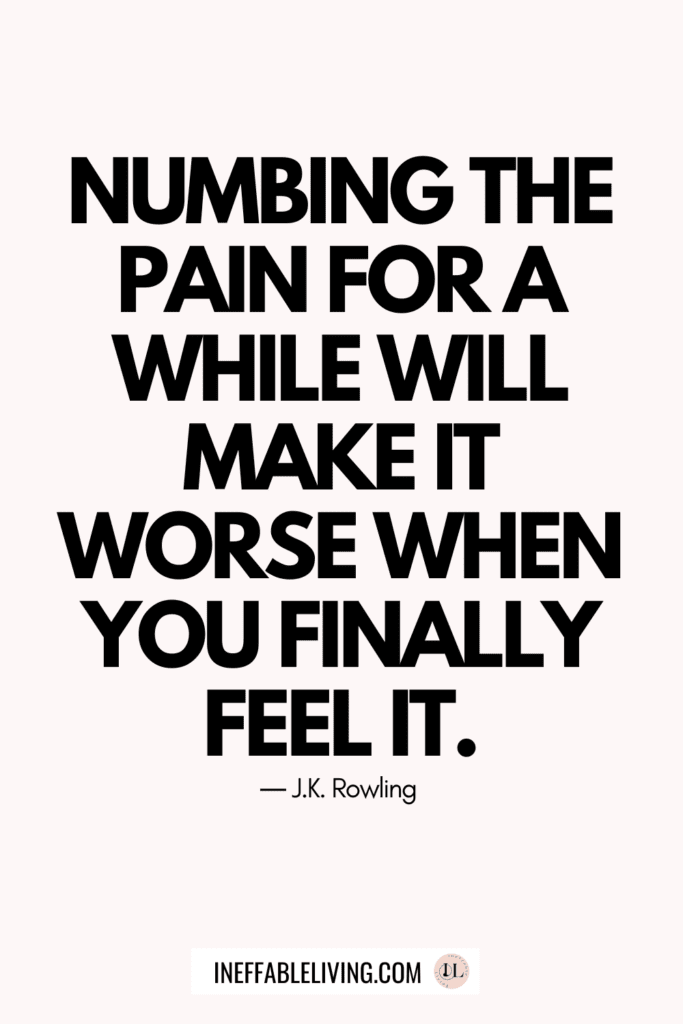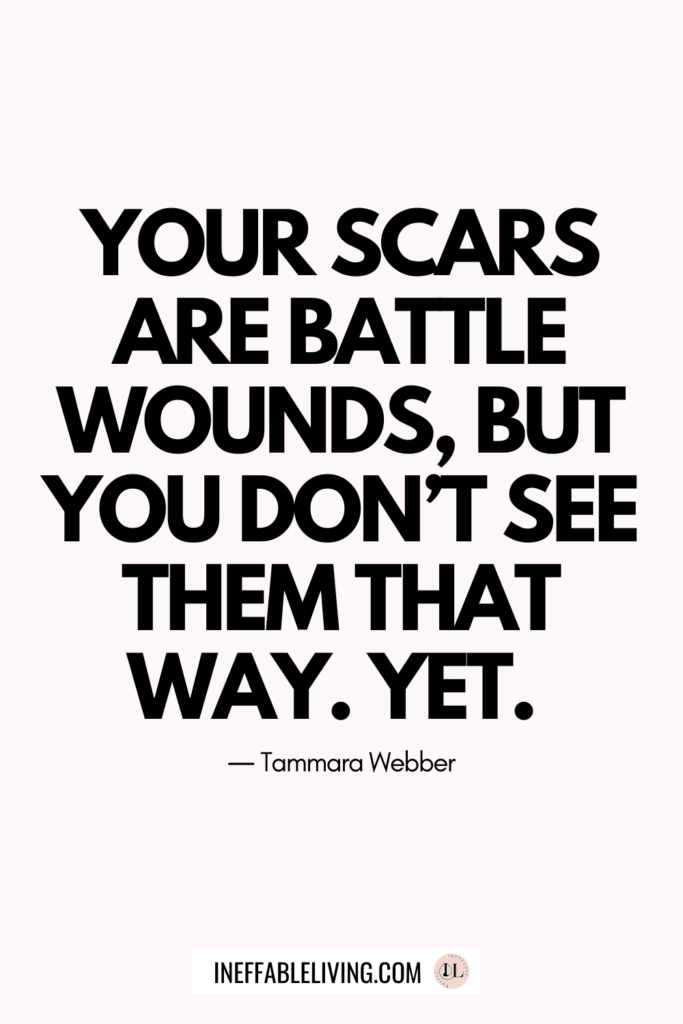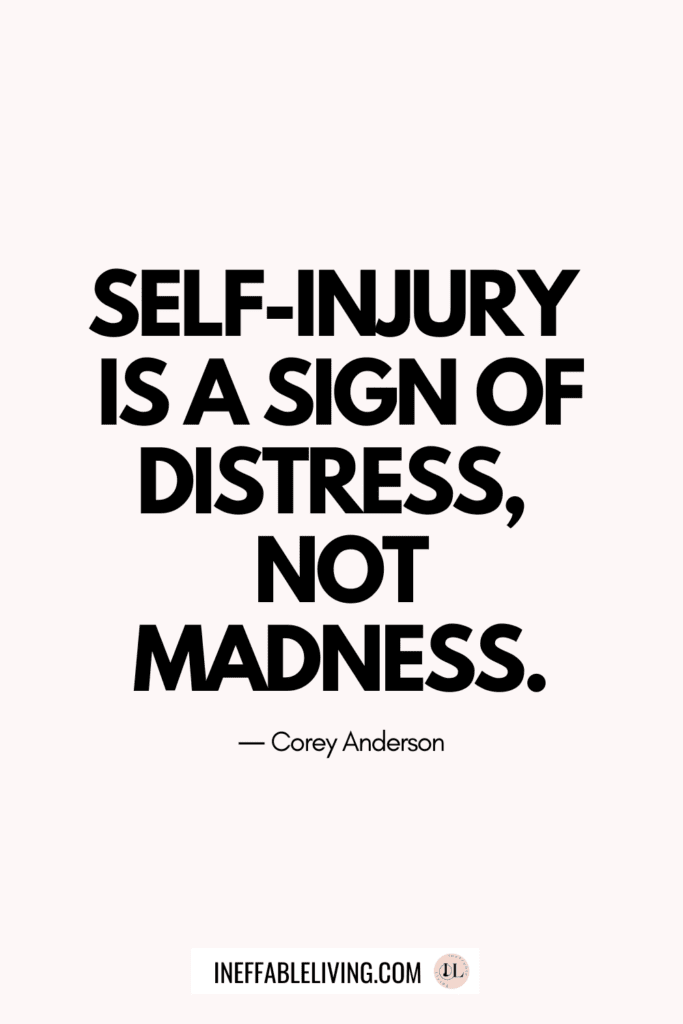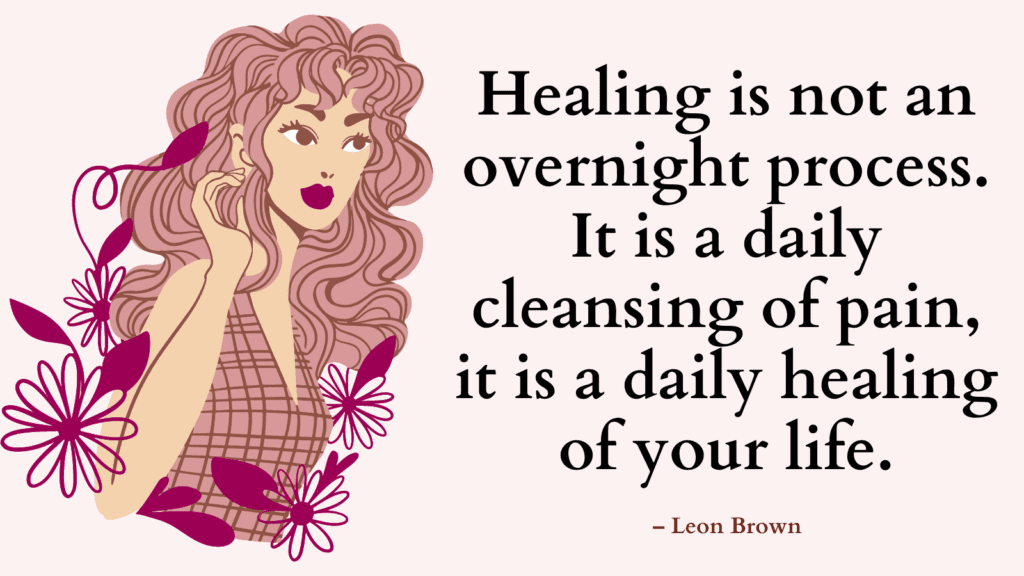This post contains some of the best self-harm quotes.
What Is Self-Harm?
Self-harm is when an individual hurts themselves as a way of dealing with their difficult emotions or overwhelming experiences.
Self-harm may bring a short-term sense of release, but the cause of distress is unlikely to have gone on its own, which often makes the one who engages in self-harm feel even worse.
Self-harm can also become an addiction once one starts depending on it to cope with difficult feelings.
Self Harm Quotes
1. “My hand no longer trembled out of fear, but out of anticipation. I knew I was addicted to the rush it provided, to the release it provided from the emotional mess I had become, but I didn’t care. It wasn’t drugs. It was just a few cuts on my arm.” ― S.M. Koz
2. “That’s when I wanted to cut. I cut to quiet the cacophony. I cut to end this abstracted agony, to reel myself back to one present and physical whole, whose blood was the proof of her tangibility.” ― Caroline Kettlewell
3. “Night after night I inflict abuse on myself, even drawing blood. It’s strangely calming. I know the pain will stop whenever I want. I was the one who decided when it should start; I will be the one to decide when it stops. However much it hurts, I draw some comfort from the idea that I’m in control.” ― Maude Julien
Related: Best 99 Coping Skills (+FREE Coping Worksheets)
4. “I can feel the hurt. There’s something good about it. Mostly it makes me stop remembering.” ― Albert Borris
5. “…when I look at my arms, I don’t think revolutionary. I think sad, and pain, but not revolutionary.” ― Kathleen Glasgow
6. “She felt so much emotionally, she would say, that a physical outlet – physical pain – was the only way to make her internal pain go away. It was the only way she could control it.” ― Richelle Mead
7. “I no longer have any fear of pain because I’m the one inflicting it and can decide when it stops.” ― Maude Julien
8. “You don’t feel like you’re hurting yourself when you’re cutting. You feel like this is the only way to take care of yourself.” ― Marilee Strong

9. “Unspeakable feelings need to find expression in words. However… verbalization of very intense feelings may be a difficult task.” ― James A. Chu
10. “Other times, I look at my scars and see something else: a girl who was trying to cope with something horrible that she should never have had to live through at all. My scars show pain and suffering, but they also show my will to survive. They’re part of my history that’ll always be there.” ― Cheryl Rainfield
11. “When you have a persistent sense of heartbreak and gut-wrench, the physical sensations become intolerable and we will do anything to make those feelings disappear. And that is really the origin of what happens in human pathology. People take drugs to make it disappear, and they cut themselves to make it disappear, and they starve themselves to make it disappear, and they have sex with anyone who comes along to make it disappear and once you have these horrible sensations in your body, you’ll do anything to make it go away.” ― Bessel A. van der Kolk
12. “Having a strong urge is like having a child throw a temper tantrum inside you, screaming “Hurt yourself!” But if you repeatedly ignore the urge’s request and don’t harm yourself, your brain will learn that urges don’t work, just as a child learns that throwing a tantrum won’t work.” ― Kim L. Gratz
Related: How To Feel Your Feelings & Sit With Painful Emotions? (Top 9 Difficult Emotions)
13. “Being cut off from our own natural self-compassion is one of the greatest impairments we can suffer. Along with our ability to feel our own pain go our best hopes for healing, dignity, and love. What seems nonadaptive and self-harming in the present was, at some point in our lives, an adaptation to help us endure what we then had to go through. If people are addicted to self-soothing behaviors, it’s only because in their formative years they did not receive the soothing they needed. Such understanding helps delete toxic self-judgment on the past and supports responsibility for the now. Hence the need for compassionate self-inquiry.” – Gabor Maté
14. “We need to start treating ourselves how we deserve to be treated, even if you feel that no one else does. Prove to the world you ARE worth something by treating yourself with the utmost respect and hope that other people will follow your example. And even if they don’t, at least one person in the world is treating you well: YOU.” – Carrie Hope Fletcher

15. “My scars remind me that I did indeed survive my deepest wounds. That in itself is an accomplishment. And they bring to mind something else, too. They remind me that the damage life has inflicted on me has, in many places, left me stronger and more resilient. What hurt me in the past has actually made me better equipped to face the present.” – Steve Goodier
Related: Top 21 Emotional Writing Prompts To Process Emotions
Overcoming Self-Harm Quotes
16. “Hush little baby, Don’t you cry, Don’t cut your arms, Don’t say goodbye. Put down that razor, Put down that light, It may be hard but, You’ll win this fight.”― Emily Giffin
17. “If you want to help people, ask why they are in so much pain that they are driven (there’s that word again) to escape from it through ultimately self-harming habits or substances.” ― Timothy Ferriss
18. “When clients self-harm, for example, these days, we understand their actions to be instinctive, rather than thought out—an effort to regulate or relieve, rather than punish.” ― Janina Fisher
19. “Self-injury is a sign of distress, not madness.” ― Corey Anderson
“Self-harm is an addiction and it’s serious whether it’s 5 cuts or 100. I myself have dealt with self-harm. I was young and alone and got beat up on all the time, and I cut to ease the pain.” – Vic Fuentes
20. “Your scars are battle wounds, but you don’t see them that way. Yet.” ― Tammara Webber
21. “Numbing the pain for a while will make it worse when you finally feel it.” ― J.K. Rowling

22. “This might surprise you, but one of the best ways to manage your emotions is simply to experience that emotion and let it run its course.” ― Kim L. Gratz
Related: The Difference Between Pain And Suffering (+Top 4 Tips On How To Embrace Pain & Stop Suffering)
23. “If you can sit with your pain, listen to your pain and respect your pain — in time you will move through your pain.” – Bryant McGill
24. “Facing it, always facing it, that’s the way to get through. Face it.” – Conrad Joseph
25. “The scars you can’t see are the ones that hurt the most.”― Michelle Hodkin
26. “Self-harm – the world will come at you with knives anyway. You do not need to beat them to it.” ― Caitlin Moran
27. “People say things meant to rip you in half but you hold the power to not turn their words into a knife and cut yourself.” ― Rupi Kaur
28. “Never feel this bad again. Never come back to this place, where only a knife will do. Live a gentle and kind life. Don’t do things that make you want to hurt yourself. Whatever you do, every day, remember this – then steer away from here.” ― Caitlin Moran
29. “Take control of your emotions before your emotions take control of you.” ― Scott Dye
30. “I found out to wait it out that it gets better. I wrote music instead of going to the blade.” ― Vic Fuentes
Related: How To Be Gentle With Yourself? Top 5 Ways To Practice Self-Compassion
Coping Skills List
31. “Albeit unorthodox, self-injury is seen by many as a gift of survival, rather than an act of self-destruction.” – Jan Sutton
32. “Although it can be a difficult concept to grasp, self-injury is fundamentally a coping mechanism, frequently born out of trauma or a deep-rooted sense of powerlessness. It could best be described as ‘a pain exchange’ in that overwhelming, invisible, emotional pain is converted into visible, physical wounds which individuals who use the practice find easier to deal with – put simply, what can be seen can be treated.” – Jan Sutton
33. “Another conjecture made about self-injury is that the severity of the wounds reflects the extent of the problem. However, what came across clearly from the Internet respondents’ testimonies is that the level of harm inflicted can vary from episode to episode, and is dependent on numerous factors, for example, stress and anxiety levels, the degree of anger, despair, self-hate, dissociation, emotional distress experienced, and the trigger severity.” – Jan Sutton
34. “As things stand, the term ‘self-harm’ is widely associated with florid and dramatic behaviour and carries a certain stigma. Individuals are unlikely to seek help at an early stage, while it is still possible for them to keep their self-harm hidden.” – Maggie Turp
35. “Direct self-injury (DSI) is self-inflicted harm to the body severe enough to cause superficial or moderate wounds and the damage is immediate and usually visible. The resulting injuries are not generally life-threatening, and the degree of severity varies from relatively minor wounds that heal reasonably quickly, to more severe wounds that result in permanent scarring.” – Jan Sutton
Related: Adult Therapy Online [20% Discount – CBT Online Therapy]
36. “From the moment someone enters a relationship, their self-injury involves not only themselves but also the relationship as a whole. The injuries may indeed be perceived by the partner as an offense, a challenge, or an attack on the viability of the relationship. Self-harming becomes part of conjugal life in the same way as disputes, infidelities, and disagreements, because it is often perceived as something done against the partner.” – Baptiste Brossard
37. “Further, while those of us who don’t self-injure may ponder long and hard trying to make sense of the seemingly senseless, the behaviour usually, though not always, makes perfect sense to those who practise it.” – Jan Sutton
38. “If society finds self-injury an uncomfortable issue to deal with, and would prefer to sweep it under the carpet, where does it leave those trapped in the behaviour? Many stay locked in a world of isolation, secrecy, shame, and silence, afraid to speak out lest they be judged and condemned.” – Jan Sutton
39. “In general, individuals that self-injure are emotionally fragile, and highly sensitive to rejection. They take things to heart, and their psychological equilibrium can be easily shaken.” – Jan Sutton
40. “In many ways self-injury serves a similar function to other harmful behaviours. For example, some people seek solace in alcohol to escape from stress while others chain smoke or comfort eat. Individuals who self-injure turn to their ‘tools’ as a means of preventing the ‘emotional melting pot’ from boiling over.” – Jan Sutton
41. “It is prudent to remember, however, that self-injury is invariably a sign of acute distress and sadly, occasionally people do kill themselves – at times accidentally by taking things too far – or sometimes because a person’s situation becomes so intolerable no other way out can be seen. Any mention of suicidal thoughts therefore needs to be taken seriously and not dismissed as attention seeking, manipulation, or ‘crying wolf.’” – Jan Sutton
42. “Just as society has come to accept that substance misuse, eating disorders, and child abuse are serious problems in our midst, it must open its eyes and heart to the truth about self-injury – that it does exist, that it is a serious problem, and that it causes immeasurable suffering not only to those caught in its clutches, but also to those supporting someone that self-injures.” – Jan Sutton
Related: Do I Need Therapy Quiz (+FREE Therapy Guide)
43. “Many who self-injure fear they are going ‘crazy’ and while the behaviour is known to coexist with other disorders – eating disorders, substance misuse, depression and anxiety, for instance, albeit atypical behaviour, self-injury does not automatically indicate mental illness.” – Jan Sutton
44. “Many who self-injure have not learned how to express their feelings in constructive ways. Perfectionism traits, low self-esteem, negative self-judgments, self-loathing, self-invalidation, and self-directed anger have also been positively correlated to self-injury.” – Jan Sutton
45. “Self-harm (self-poisoning and self-injury) are sensitive issues, and presenting accurate information about the behaviour is vital.” – Jan Sutton
46. “Self-harm is not exclusively a female issue, as is sometimes implied, but it remains the case, at least in contemporary Western society, that women are more likely to turn their aggression towards themselves, while men are more likely to turn it towards others.” – Maggie Turp
47. “Self-harm often arises at moments of despair or intensity, and its reasons are not necessarily available to the conscious mind.” – Anna Motz
48. “Self-injury acts like a sleeping pill – it calms people down and enables them to get to sleep – in other words, it’s easier to sleep with physical wounds than with painful traumatic memories, nightmares, night terrors, intrusive thoughts, fear-provoking images or overwhelming feelings.” – Jan Sutton
49. “Self-injury episodes carried out under the influence of alcohol are frequently of an impulsive nature.” – Jan Sutton
Related: Why Is Trauma Therapy So Hard? (+Best Trauma Healing Exercises To Support Your Recovery)
50. “Self-injury is a phenomenon that society finds hard to understand and accept – it would prefer that it didn’t exist. Yet sadly it does exist, moreover, it is much more common than generally realised.” – Jan Sutton
51. “Self-injury is an expression of acute psychological distress.” – Jan Sutton
52. “Self-injury is beset by myths and misconceptions. Stereotyping people keeps myths, stigma and prejudice alive. Becoming better informed is vital to reducing prejudice and stigma.” – Jan Sutton
53. “Self-injury is more about attention needing than attention seeking. In the main, the act is carried out in private and the wounds and scars from self-injury are carefully concealed beneath items of clothing, jewellery, bangles, or sweat bands.” – Jan Sutton
54. “Self-injury is often misconstrued as a death wish or failed suicide attempt when in all actuality, those who engage in the practice have no desire to die. Indeed, self-injury for many is a life saver, rather than a life taker – in essence it keeps people safe from suicide.” – Jan Sutton
55. “Self-injury is symptomatic of an underlying problem. Recovery requires looking beyond the visible injuries and healing the invisible internal wounds.” – Jan Sutton
56. “Self-injury is widely misunderstood. It is an uncomfortable subject to think about, to talk about, a difficult behaviour to accept, and dealing with the issue presents many challenges to caregivers.” – Jan Sutton
57. “Self-injury isn’t an illness children are born with. It is a behaviour that develops to cope with life’s pressures and ills. Acceptance, awareness, education and empathy are crucial to enable those suffering in silence to step out of the closet of secrecy and shame, and to receive the help they need and deserve.” – Jan Sutton
58. “Self-injury knows no bounds. It affects all strata of society – men and women, all age groups, social classes, ethnicities, religions and educational backgrounds. The bond shared by all is emotional pain.” – Jan Sutton
59. “Self-injury occurs in all age groups, and can affect people from all walks of life. It is not an exclusively teenage, all female phenomenon. Men self-injure too. Nor is it a new trend.” – Jan Sutton
60. “Self-injury serves effectively as an outlet for tears that cannot be shed, for pain and grief that cannot be expressed, as self-punishment for ‘being weak’ and wanting to cry, to prevent tears from spilling over, or to block out emotional pain.” – Jan Sutton
61. “The controversy over terms is no trivial matter. The terms deliberate self-harm, self-harm, and parasuicide, muddy the waters, causing bewilderment and misunderstandings in their wake.” – Jan Sutton
Related: 7 Trauma Release Exercises To Support Your Recovery After Trauma
62. “The intentionality criterion distinguishes intentional self-harming, on the one hand, from more common acts such as nail-biting or smoking cigarettes, which are attacks on the body but whose motive is not, strictly speaking, the attack of the body and, on the other hand, from so-called stereotypical self-injuries, performed compulsively, without intention.” – Baptiste Brossard
63. “The repetitiveness criterion differentiates what I call self-injury from other punctual conducts, such as, for example, someone who might punch a wall because they were upset that day. It also suggests a physical gravity criterion, because for a type of injury to repeat, it must not be definitive. In other words, it is not a self-amputation.” – Baptiste Brossard
64. “Those who self-injure are not always a burden on society. Many lead constructive and fruitful lives.” – Jan Sutton
65. “Unquestionably, self-injury is occasionally used as a way of drawing attention to one’s pain and suffering if attempts to express one’s anguish falls on deaf ears, words cannot accurately convey what is being felt on the inside or one’s emotional needs are not being met.” – Jan Sutton
66. “Whilst self-injury has been linked to a range of psychiatric disorders, it doesn’t automatically indicate that people who self-injure are mentally ill. Nor is it an automatic sign of Borderline Personality Disorder.” – Jan Sutton
67. “With compulsive self-injury, individuals experience a strong urge to inflict injuries on themselves – as one respondent explained, a compulsion is like ‘the brain flashing the message “do this, do this, do this, do this . . .”’ Characteristically, compulsive self-injury stems from an irresistible craving to perform the act.” – Jan Sutton
68. “Yet another common myth about self-injury is that individuals who do it are a danger to others, thus it’s safer to steer clear of them. This assumption is deeply offensive to some who practice the behaviour and who would never dream of striking out at anyone else.” – Jan Sutton
Related: Undermothered: How to Mother Yourself Using These Practical 10 Strategies?

References
- Self-harm – Wikipedia
- The truth about self-harm | Mental Health Foundation
- What is self-harm? – Mind
- Self-harm – what you need to know. (rethink.org)
- Self-harm | NAMI: National Alliance on Mental Illness
- Where to get help for self-harm – NHS (www.nhs.uk)
- Cutting & Self-Harm: Warning Signs and Treatment (webmd.com)
- Frontiers | Understanding the Needs of Young People Who Engage in Self-Harm: A Qualitative Investigation (frontiersin.org)
- Self-harm with suicidal and non-suicidal intent in young people in sub-Saharan Africa: a systematic review | BMC Psychiatry | Full Text (biomedcentral.com)
- Nonsuicidal Self-Injury: What We Know, and What We Need to Know – PMC (nih.gov)



